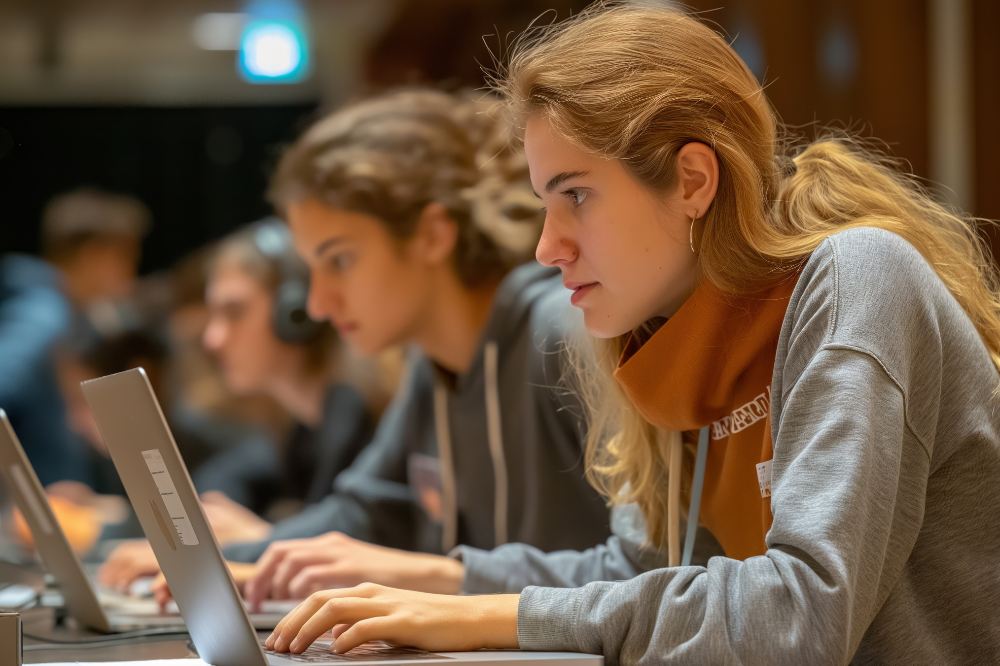
First launched as a blog in 2011, Year13 is an Australia-based organisation that supports millions of high school students, recent leavers and educators from Australia and the United States with career-related resources. Motivated by a close friend’s difficult journey, co-founders Saxon Phipps and Will Stubley wanted to help other school leavers find their footing.
Since then, Year13’s service has evolved into a comprehensive platform that includes articles, skill programs, job opportunities and advice. It has acquired or independently launched other brands to complement these resources, including Career Tools, Australia’s largest school-to-work transition platform used by more than 1,250 high schools. Now, the organisation is deploying AI technology to improve outcomes further for more than two million yearly users.
Despite broadening its offerings, the organisation has kept the same mission: to improve the wellbeing of young people at home and abroad by assisting them with the transition from school to life beyond. Phipps and Stubley remain acutely aware of how fraught that adjustment period can be.
“We put so much pressure on young people to know what they’re going to do for the rest of their lives,” Phipps said.
“School leavers only have a very small window of opportunity to experience different industries and educational pathways.”
Phipps said Year13 bases this pressure on the idea that there’s a linear path to success, but 66% of students say they're leaving school with no plan as to what they want to be able to do.
“We have the resources to help them.”
Equipping the next generations with modern skills
Year13 has partnered with Microsoft to develop modern skilling modules that prepare students and educators for the future of work. The collaboration aligns with Microsoft’s AI National Skills Initiative, which includes a commitment to help one million people in Australia and New Zealand secure the digital skills needed to thrive in the AI economy by 2026.
For example, the Year13 AI Amplified program provides Australian students with essential digital skills and education on rapidly emerging AI-powered tools, including large language models (LLMs). Developed with Microsoft and KPMG, the program has already witnessed great success – more than 10,000 modules were completed during the pilot phase.
“We saw that we needed to help upskill young people, to remove that stigma surrounding AI,” Phipps said. “How can they use it to understand their skills? How can they use it at scale to understand complex problems and then articulate that understanding?”
Phipps said this why AI Amplified was developed, and it’s having the desired impact.
“We're looking to have about 50,000 completions by 2025.”
Year13’s ambition is to broaden school leavers’ perceptions of available pathways and their capacity to learn new skills. While the uptake of new modules has been exceptional, the co-founders are particularly pleased to have a positive impact on participants’ attitudes and expanding their awareness of career possibilities. They also hope the modules can help improve retention rates among tertiary students and apprentices.
“In Australia, we have a university dropout rate of 30 per cent in the first year and apprenticeship dropout rates close to 50 per cent,” Stubley said. “There’s clearly a problem.”
Stubley said the goal is “to move the needle on those sorts of baselines.”
“So far, all of the lead indicators regarding increased confidence, exploration of different opportunities and general engagement from students have increased by an order of magnitude.”
Deploying AI to personalise career coaching
Microsoft and Year13 have further collaborated to design and implement AI solutions that personalise career guidance and improve student outcomes. The work complements Microsoft’s commitment to helping Australians and others take full advantage of the advances on offer as the AI economy develops.
“For us, AI is not a buzzword,” Stubley said. “It’s game-changing for our whole product and the industry vertical of career education and support. We can now tailor all the products and content using large language models, making the experience so much more approachable.”
Year13 recently piloted a ‘Career Coach’ in North Carolina, US, built using Microsoft Azure OpenAI. This AI-driven career advisor provides personalised guidance to students with simple prompting. Informed by individual and labour market data, the tool helps students better explore career pathways, understand their strengths and make better-informed decisions about their future. It also allows Year13 to extend its reach.
“Our initial conversations were centred on how AI can help young people who only need a bit of assistance,” Phipps said. “Career Coach creates time for the career advisor, enabling them to provide more comprehensive support to the 20 per cent of students who need that more one-to-one guidance.”
Following its initial successes, the organisation plans to deploy Career Coach to the wider Year13 community in Australia and abroad by the start of the 2025 school year. While the organisation has only recently launched in the US, plans are already underway to offer its services to students in other countries in the short-to-medium term, increasing the reach of this intuitive tool.
Using Microsoft Azure infrastructure to improve services
To offer greater functionality and features across the platform, Year13 is currently migrating its cloud and data platform to Microsoft Azure. Considering Microsoft’s unique position within the Australian and global education landscapes, Year13’s leadership team saw it as the ideal option.
“A core problem that we are solving is that the school-to-work ecosystem is disconnected. A large part of what we are doing is helping bring that ecosystem together, partnering with different student information systems, employers and content providers,” Stubley said.
“Microsoft is at the heart of that ecosystem. Who else within the education space can help pull it all together? If Microsoft isn’t in the picture, you’re removing a leg from the stool.”
The original version of this article appeared as a media release from Year13.


